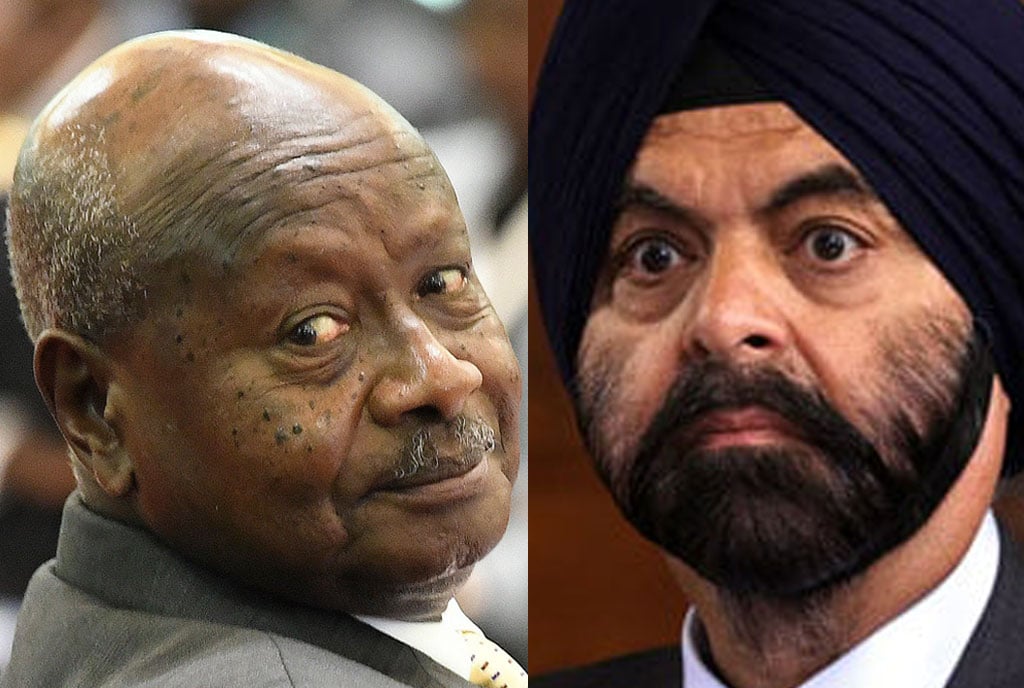Prime
Everyone has a plan until they are punched in the mouth. Can we grin and bear the funding cuts?

Mr Daniel K. Kalinaki
What you need to know:
- Those with just warm porridge pushing back against their skulls would be escorted outside and sent to join our armed forces to defend us from foreign enemies.
Government officials have responded bullishly to the World Bank’s announcement suspending discussions on new loans and grants due to concerns over the Anti-Homosexuality Act. The President, ministers, MPs and other officials have all lined up to reassure the public that we can do without money from pesky foreigners.
Let’s run some cold numbers. The total World Bank portfolio being put on the backburner amounts to $1.8 billion, about Shs6.6 trillion. This is equivalent to the combined total amount of money allocated in this financial year budget for electricity (Shs1.6 trillion), oil and gas (Shs447b), tourism (Shs249b) and the Shs4.5 trillion allocated to roads, railways and all other transport sector projects.
Or consider, instead, the President’s Emergency Plan for Aids Relief (Pepfar).
Dating back to the Bush regime in America at the turn of the millennium, Pepfar supplies medicines to nine out of 10 Ugandans among the 1.4 million living with HIV, the virus that causes Aids. These drugs keep these Ugandans alive and reduce the risk of spreading the virus to their unborn babies or their partners.
Discussions to extend Pepfar were suspended earlier in the year over concerns about the law. It remains unclear if it will be renewed, and for how long.
The numbers are varied and complicated, but various studies put the average cost of treating someone with HIV in sub-Saharan Africa at about $500 per year. Without Pepfar’s cash and the purchasing power of Unaids and related entities, this would require at least another $700m every year – or Shs2.6 trillion in Museveni’s money.
A billion is a lot of money in any currency – and we are talking about a funding gap of almost 10 trillion, or a fifth of our annual budget. How about we side-step the arguments about the World Bank’s double-standards, and those of the West generally, on cherry-picking human rights issues and take up our politicians on their offer to make sacrifices, weather the storm, and wean us off the dependence on foreign aid?
Your columnist has a few cost-cutting ideas which, in typical generosity and in light of the austere times, are offered free. Some are low-hanging fruit, like all government cars, except those of the military, being put up for auction to the highest bidder, with the proceeds invested in rebuilding urban roads.
As the Fountain of Honour, the President can keep a third of his convoy, or 20 cars, whichever is lower, and share them with the Vice President, the Chief Justice and the Speaker. Other things like foreign travel, bodyguards, beef samosas and groundnuts (ebinyebwa, amaidho) in meeting rooms would have long been scrapped.
Slashing salaries is against the law, but restructuring positions isn’t. To reduce the size of government, therefore, your columnist proposes two rules for Cabinet and for Parliament. In the case of cabinet ministers, they should be paraded out, one-by-one, in front of a live television panel of citizens randomly selected. As each one steps forward, a citizen is chosen to guess the minister’s name and what they do; if they get it wrong, they both go home and the ministry is scrapped.
A similar arrangement could be considered for MPs with a slight variation. First, given their numbers, it should be held in Namboole Stadium. Second, each MP should have 30 seconds to propose a concrete measure that would save at least Shs10 billion per year, with the crowd allowed to vote instantly by mobile phone on its viability. It would be a win-win: MPs whose ideas make sense would get to stay in Parliament and oversee the implementation of their cost-saving plan; if we can save Shs5 trillion, we can keep everyone and stay the course. Those with just warm porridge pushing back against their skulls would be escorted outside and sent to join our armed forces to defend us from foreign enemies.
The size of Parliament would be determined by the number of MPs who remain. These would then be randomly allocated constituencies to represent, as part of our effort to promote Pan-Africanism and non-sectarianism.
MPs and some members of the Executive had done a thankless job protecting our traditional values from outside attack. Now that our enemies are unrelenting, they should step forward and protect us from these austerity measures by sacrificing for our country. I am sure that there was always a plan to guard against these counter-revolutionary moves and that plan took into consideration the possibility of being punched in the mouth. Let aaatthh thhpeat thha blood and excthequte!
*With apologies to Mike ‘Iron Mike’ Tyson
Daniel Kalinaki is a journalist and poor man’s freedom fighter.
[email protected]; @Kalinaki




